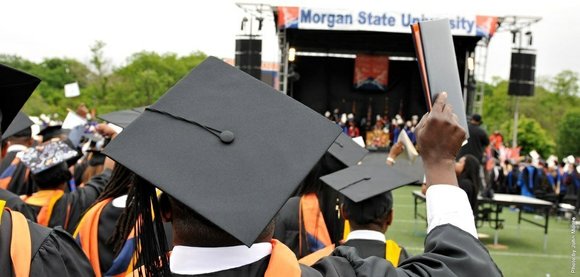Undereducated, poor and middle class high school graduates are the cannon fodder of higher education. Each year, colleges routinely accept large numbers of students, knowing most will not make it to the finish line. I believe it is time to hold colleges and universities more accountable to the students they accept.
A recent Pew Research survey finds that less than one out of three people aged 25 to 32 have earned a four year college degree. The percentage is even lower for black and minority students. These findings are puzzling. At a time when an increasing number of students are attending college, the study shows there has been a dramatic drop in the four-year graduation rate. In other words more kids are going to college, but fewer are finishing.
What accounts for this growing disparity, who is responsible and why as a society we must identify and implement steps to reverse the trend?
To build my case for “mandatory four-year college graduation” I begin by addressing why a college education matters. The Pew study offers an alarming fact: “The education gap is higher than any other time in history. Young college graduates are ahead on virtually every measure of economic well-being, earning an eye-popping $17,500 more per year than those with only a high school diploma.”
“Poverty” the researchers found “is one of the biggest threats to young people without college degrees. Nearly a one out of four (22 percent) of young people ages 25 to 32 without a college degree live in poverty today, whereas only six percent (less than-one- out-of-ten) of the college-educated fall into this camp.”
The rising cost of earning a degree accounts for the reason many students do not complete their studies. Without question higher education is expensive, but the study shows it is a good investment.
According to the Pew study, “It’s more costly not to have a college education than ever before. The typical high school graduate’s earnings dropped by more than $3,000, from $31,384 in 1965 to $28,000 in 2013. The Pew study concludes its report with a thought-provoking list of questions and few, long-term, definitive answers.
“How much is this trend going to cost America as a nation? It’s too early to say for sure, but young adult underemployment, which is directly linked to under education, is already costing $25 billion a year, largely because of the lost tax revenue.”
There are a host of other costs associated with the challenge of accommodating large numbers of under educated, under employed citizens. Should society be prepared “to see increased rates of alcoholism and substance abuse? Broken relationships? Depression? The long list of physical ailments that go along with the stress of not being able to gain and keep a financial foothold?”
There are a several of factors responsible for the decreasing number of students earning four-year degrees. In my opinion the root cause of this failure rests within the broad spectrum of our educational system. Fueled by an enormous money grab that pours billions and billions in education reform dollars into a broken system that yields little success and even less accountability. The result, our grade schools fail to adequately prepare far too many high school graduates to meet the academic demands of college level work.
There are billions more in borrowed money easily available to help finance a college education for students who are not remotely capable of completing. With all that money on the table, higher education finds itself unable to resist accepting kids they know have little hope of earning a degree in four years, or any other length of time.
After nine years of writing about school reform measures, I see little evidence public schools are doing a better job of educating our children. In fact, the Pew reports offers proof the rate of failure is increasing. Harnessing my frustration with the public school system, I am shifting my focus to ways to eliminating higher education’s financial incentives to accept poorly prepared students. Given their tremendous resources my hope is colleges will take on more responsibility for helping grade students get ready to complete their college degrees.
Since I raised this issue last week I have received feedback that merits further discussion. I shall explain in a future column a legitimate basis for these recommendations. Reader feedback is particularly welcome on the subject of mandatory four-year college graduation.
Jayne Matthews Hopson writes about educational matters because “only the educated are free.”
